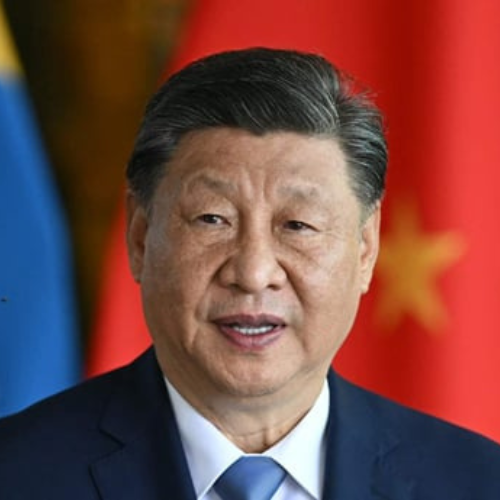During a high-profile visit to Brazil, Chinese President Xi Jinping made a heartfelt appeal for peace in two of the world’s most serious ongoing conflicts: the war in Ukraine and the violence in Gaza. Xi’s visit to Brazil’s capital, Brasília, was marked by a warm welcome from Brazilian President Luiz Inácio Lula da Silva, as the two leaders discussed global and regional issues.
Xi urged for “more voices” to help bring the Ukraine war to an end and called for a ceasefire in Gaza, where fighting has caused immense suffering. Brazilian President Lula supported these calls and emphasized that China and Brazil prioritize peace, diplomacy, and dialogue in an increasingly divided world.
Advocating Diplomacy in Ukraine and Gaza
President Xi’s push for peace in Ukraine comes as part of a joint China-Brazil plan to mediate the conflict. This plan, described as a “roadmap for peace,” has been backed by Russia, a close ally of China, but has faced rejection from Ukraine and its Western supporters. Xi said that the world needs “more voices” advocating for a peaceful resolution to the war and called for diplomatic efforts to end the violence.
On the crisis in Gaza, Xi joined global calls for a ceasefire and an end to the ongoing war. This echoed the stance taken by world leaders during recent G20 and APEC summits, where they called for immediate action to stop the fighting in Gaza and Lebanon. However, despite these appeals, the United States vetoed a UN resolution that sought an “immediate, unconditional, and permanent ceasefire” in Gaza, leaving the situation unresolved.
Lula expressed his agreement with Xi’s focus on peace, stating that Brazil and China aim to lead by example in promoting dialogue and avoiding conflict.
Strengthening Ties Between China and Brazil
Xi’s visit also highlighted the growing partnership between China and Brazil, two of the largest economies in Asia and Latin America. The leaders signed 35 agreements covering trade, agriculture, technology, and environmental protection. Xi described the relationship as the best it has ever been, calling the two countries “reliable friends.” Lula echoed these sentiments, saying their cooperation would surpass expectations and strengthen in the years ahead.
Elon Musk’s China Business Ties Spark Concerns Over U.S. Security
China is Brazil’s biggest trading partner, with trade between the two nations totaling more than $160 billion last year. Brazil exports agricultural products like soybeans to China, while importing high-tech goods such as semiconductors, vehicles, and medicines.
While some observers expected Brazil to officially join China’s Belt and Road Initiative—a massive project aimed at improving global trade infrastructure—no such announcement was made. Instead, both leaders discussed aligning this initiative with Brazil’s own infrastructure development plans.
One notable agreement from the visit involved Brazil opening its market to SpaceSail, a Chinese satellite company. This sets up competition with SpaceX’s Starlink, owned by US billionaire Elon Musk, which already provides internet services to remote regions of Brazil.
Global Dynamics and the Role of Peace
The timing of Xi’s visit to Brazil is significant, as it reflects China’s rising influence at a time when the United States’ role in global affairs appears less dominant. Analysts suggest that Xi is positioning himself as a leader in diplomacy and multilateral cooperation. His prominent role at recent international summits stood in contrast to the perceived decline in US engagement, especially with the political transition in Washington.
For Brazil, this visit is part of a careful balancing act. Lula has sought to improve ties with both China and the United States, maintaining friendly relations with both major powers. The agreements signed during Xi’s visit reflect Brazil’s desire to deepen cooperation with China while also looking to strengthen its domestic economy and infrastructure.
As the two leaders celebrated their growing partnership, Xi reaffirmed his belief in working together for peace. Lula, in turn, expressed his commitment to using Brazil’s influence to support diplomacy and avoid further conflict worldwide.


